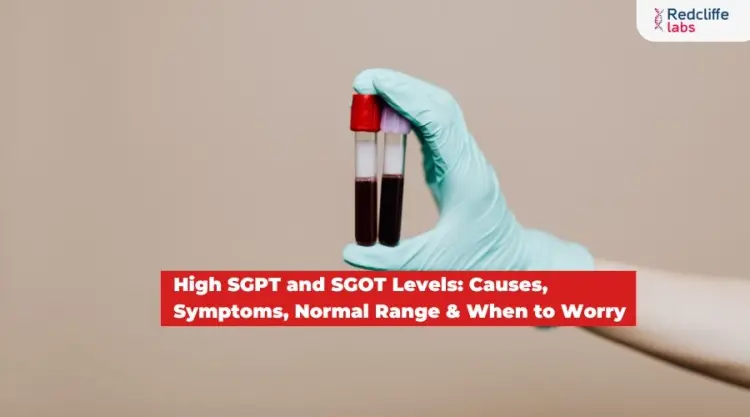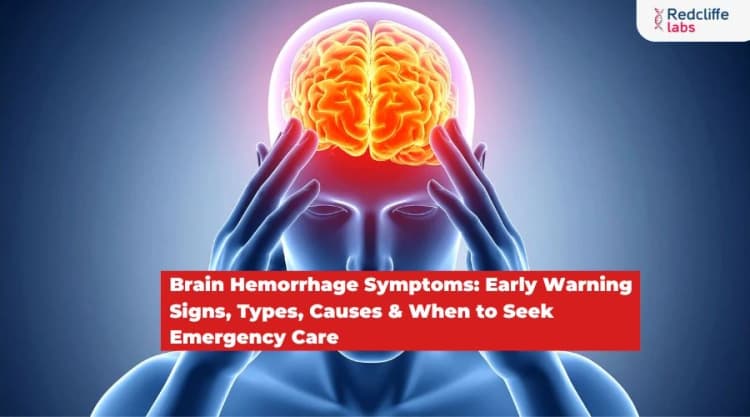Blood
Unlock special
discount on
this package
Login to Unlock 🔓
NABL Accredited lab*

Booking Benefits Unlocked Worth FREE 799

Report Consultation

Diet Plan
*Available once your report is generated.
At Redcliffe Labs, we have a single goal: to give India its right to quality diagnostics.
Customers served
Tests Processed Everyday
Cities
Collection Centres
World Class In-house Labs
Home Collection Experts
1 Test Parameters
Food Intolerance Test
1 PARAMETER INCLUDED
1 PARAMETER INCLUDED
- Food Intolerance Test
Helps you know your test better
Who should take the food intolerance test?
- Individuals who have food allergy symptoms that affect their digestion, skin, and breathing. For example, coughing, itchy skin, tingling in the mouth, stuffy, itchy, runny nose, etc.
Why take the food intolerance test?
- Your doctor may ask you for a food intolerance test to detect if you are allergic to a particular food. Also, it is performed to determine whether you are allergic to a food or just sensitive to it.
What are the benefits of the food intolerance test?
- A food intolerance test helps your healthcare provider identify which foods you are allergic to, so you can adjust your diet and plan your treatment accordingly.
Top Booked Health Checkup Packages
Reports in 12 hours
|Parameters 94
Reports in 12 hours
|Parameters 89
Reports in 12 hours
|Parameters 96
Reports in 12 hours
|Parameters 96
Reports in 12 hours
|Parameters 90
Verified by Medical Expert

WRITTEN BY
Sheena Mehta

MEDICALLY REVIEWED BY
Dr. Pradeep Lodha
Table of Content
Introduction to Food intolerance test
Whether food intolerances or food sensitivities, these are unwanted reactions to certain foods. Consuming certain foods can cause sensitivities, including symptoms such as an upset stomach, gas, abdominal pain, bloating, and other gastrointestinal problems. Food intolerance is not the same as food allergies. The main difference is that food allergies indicate how your immune system reacts after eating a certain food. Besides, with food intolerance, the reactions are normally predictable; however, allergic reactions are unpredictable. Many allergic reactions are mild, and others can be serious and life-threatening. So, your doctor may suggest a food intolerance test to detect if you or your child are allergic to a particular food. The test is also performed to get a clearer picture of whether you are truly allergic to a food or just sensitive to it.
Your immune system reacts adversely to usually harmless foods, and its reaction can vary from mild to intense. Food intolerance is a condition that is very common in children. Common foods that can cause food intolerance include:
- Milk
- Soy
- Wheat
- Peanuts
- Shellfish
- Nuts
If you're searching for a food intolerance test near me in Delhi, you can book it now with Redcliffe Labs. It is one of the best diagnostic centers and diagnostic labs in India. It offers a vast collection of tests at the best available price. Our phlebotomist will come to your doorstep with a home sample collection kit. He is well-trained, experienced, and professional enough to take on a fast and minimally painful experience. So, why wait? Book a food intolerance test from Healthy India Ki Trusted Lab, Redcliffe Labs.
Test Details:
| Also Known As | total IgG test, allergy-specific IgG test |
| Purpose | This test helps identify specific food that individuals may have difficulty digesting or reacting to. |
| Preparation | Do not drink or smoke before the test |
| Fasting | No fasting is required. |
| Get Reports Within | 5 days |
| Actual Cost | INR 31,900 |
| Discounted Cost | INR 14, 000 |
Purpose of the food intolerance test
Here is the key purpose of the food intolerance test-
- Identify trigger foods- The test helps to identify the non-allergic food sensitivities that may lead to symptoms like bloating, gas, stomach pain, headaches, fatigue, skin issues, or joint pain.
- Improve Digestive Health- Knowing all the problematic foods can prevent digestive discomfort and improve gut health.
- Prevent Chronic Symptoms—The test helps you manage or prevent conditions like IBS, migraines, and chronic fatigue.
- Improve overall health- Eliminating the triggers helps to boost mood and energy levels and support better immunity.
- Personalized Nutrition Plans- Knowing the food triggers allows your healthcare providers to create a customized plan based on your unique food sensitivities.
What does a food intolerance test measure?
The food intolerance test measures the body's immune system's response to specific foods by detecting levels of IgG antibodies in your blood. The test measures the reaction to food chains. The elevated IgG levels may indicate a sensitivity to a particular food.
For example, the test checks for enzyme deficiencies, like lactase, which is needed to digest lactose. Low levels indicate lactose intolerance. The test helps to identify various food sensitivities, including dairy, gluten sensitivity, intolerance to eggs, soy, nuts, caffeine, food preservatives, and additives like sulfites and MSG.
What is a food intolerance test used for?
The food intolerance test detects if you are allergic or intolerant to any food. Food intolerance is a reaction of the immune system that affects our organs. It leads to serious health consequences. It helps to know that symptoms such as nausea, abdominal pain, diarrhea, and gas are due to allergic reactions-
Common food sensitivities include-
- Lactose- Various sugars are present in dairy products that may cause allergies. People often confuse this with milk allergy.
- Gluten is a protein found in barley, wheat, and other grains.
- MSG- A type of additive used in foods.
When do I need a food intolerance test?
Some foods can make you ill despite their several health benefits. They can spike food insensitivity symptoms such as headaches, skin issues, joint pains, or digestive discomfort. Many times, reactions are only visible hours after eating the food. It can lead to serious health consequences. You may require a food intolerance test on the National Health Stack (NHS) if you experience any symptoms associated with the condition. Besides, you may also need a test if you have some risk factors for developing food intolerance based on certain conditions:
- Family history of food intolerance or allergies: Your healthcare provider will ask for detailed information about your family history of allergy symptoms. He may suggest a food intolerance test, as without receiving your medical attention, he won't initiate the appropriate treatment.
- Any other food allergies: Family history alone cannot confirm a food intolerance test. The test will also reveal if you are allergic to different foods; thus, immediate treatment will be administered.
- Other allergies, such as eczema or hay fever: A food intolerance blood test is recommended to determine whether the food is linked to eczema symptoms.
- Asthma: Foods, food additives, and chemicals rarely trigger asthma, but they can trigger food intolerance or an allergic reaction.
No matter the reason, if your doctor has suggested food intolerance test based on your symptoms, risk factors, or other reasons, you need not delay, as the outcomes could be drastic. Getting tested in time is crucial to evaluating your food intolerance capacities and evaluating measures accordingly.
The symptoms of food intolerance affect different parts of your body. However, the skin, respiratory system, and digestive system are some common body parts that experience the symptoms of food allergies. Let's discover them in detail.
- Skin notices the first signs of an allergic reaction. You may see rashes, hives, itching, redness, and tingling.
- Respiratory system: The allergens may irritate your nose, throat, and lungs. You may also experience wheezing, chest tightness, or nasal congestion.
- Digestive System: Some food intolerances or sensitivities may affect the digestive system. Symptoms include itching, swelling, abdominal pain, or a metallic taste in the mouth.
What preparations are required for the food intolerance test?
A healthcare provider starts the conversation by talking to you about your symptoms. They will suggest a food intolerance blood test or other tests to reach your diagnosis. These include an oral challenge test, an elimination diet test, and a skin prick test. However, a food intolerance blood test is the most preferred one to identify specific foods that may be causing adverse reactions in your body.
The food intolerance blood test requires no specific preparations. A blood sample is taken to check for IgG antibodies formed when your body is exposed to an allergic substance. Following a few guidelines will help you get accurate test results.
- No fasting: The test doesn’t require fasting so you can eat or drink anything before it.
- Avoid over-the-counter medicine, as its ingredients can impact your test results after consulting your doctor. Continue or stop taking medication before the test is safe.
- Avoid intense exercise: To protect yourself from hormone fluctuations, avoid intense exercise before a food intolerance blood test.
Please contact your healthcare provider for clarification if you have any concerns or doubts about the test preparations.
What is the procedure for the food intolerance test?
The food intolerance test is simple. Below is step-by-step information on the food intolerance blood test procedure to give you an idea of it.
- Once booked, our phlebotomist will arrive at your doorstep with a home sample collection kit at the desired time.
- He will tie a band around one of your arms, ensuring the vein is visible. Then, he will clean the site with a disinfectant product and insert the syringe to take the blood sample.
- The phlebotomist will transfer the collected blood into a vial or test tube.
- Then, he will cover the puncture site with a bandage to prevent infection or excessive bleeding.
- The collected sample will be labeled with your name and sent to the laboratory for analysis.
There is no risk associated with a food intolerance blood test. Except that the pricking of a needle into your vein can be slightly painful, sore, or cause a bruise. After a blood test, some people feel dizzy, lightheaded, faint, or nauseous. However, these symptoms are temporary. Besides, pain or a bruise will also disappear after a few days. If they don’t, seeking medical assistance is advisable.
What does the Food Intolerance Test Report Indicate?
A food intolerance test measures your insensitivity levels by examining your IgG immune response to all foods included in the panel.
The food intolerance test report will reveal the following:
- Values under 0.35 reveal unlikely sensitivities to the allergens.
- Values between 0.35 and 0.69 indicate doubtful intolerance.
- Values between 0.70 and 3.49 show possibility.
- Values between 3.50 and 17.49 mean a greater possibility.
- Values between 17.50 and 49.99 mean very likely
- Values between 50.00 and 100.00 mean almost food intolerance.
- Values over 100.00 mean they are extremely likely.
Consult your healthcare provider to understand what food intolerance test reports indicate based on your results.
What if the food intolerance test reports are positive?
A positive food intolerance test report indicates that you reacted to a substance. Attempting to self-diagnose food allergies and interpret the results can be challenging. An allergist, however, is an expert in accurately interpreting the test results and explaining what they mean.
What does the food intolerance test result mean?
The food intolerance test checks for IgG antibodies to specific foods in the patient’s blood. An increase in IgG for a certain food reveals intolerance to that food. IgG antibodies are present in healthy adults and children with no symptoms.
A food intolerance blood test measures the patient’s immune system’s response to certain foods by measuring immunoglobulin (IgG), an allergy-related antibody.
Who should take the food intolerance test?
Food intolerances or sensitivities are complicated because their causes and symptoms are huge. Your digestion is more likely to initiate them than your immune system. Individuals who experience any symptoms associated with the condition or if they have a risk of developing food intolerances due to a family history of food intolerances or allergies. The test can also be ordered to look for other specific food allergies, intolerances, or sensitivities before they get too serious or dangerous.
What are the common symptoms related to a food intolerance test?
A food intolerance test detects whether you or your child are truly allergic to or sensitive to a food. The three most common food sensitivities are lactose, gluten, and monosodium glutamate (MSG). Common symptoms of a food intolerance test are:
- Abdominal Pain
- Upset Stomach
- Headaches or migraines
- Nausea
- Heartburn
- Gas and bloating
Food Intolerance Test price @ Redcliffe Labs
If your allergist has suggested the test, book it without delay. The food intolerance test price at Redcliffe Labs is Rs. 14,000. Our phlebotomist will visit your property to collect the blood sample. Express slots are available for a food intolerance blood test to collect your sample within 45 minutes. Get reports within 5 days. So, what are you waiting for? Book a food intolerance test with us now!

Food Intolerance Test Cost in Different Cities - Redcliffe Labs
| City Name | Discounted Price |
| Delhi | ₹14000 |
| Ahmedabad | ₹14000 |
| Mumbai | ₹14000 |
| Bangalore | ₹14000 |
| Noida | ₹14000 |
| Pune | ₹14000 |
| Lucknow | ₹14000 |
| Hyderabad | ₹14000 |
| Chennai | ₹14000 |
| Gurgaon | ₹14000 |
| Jaipur | ₹14000 |
| Faridabad | ₹14000 |
| Indore | ₹14000 |
| Patna | ₹14000 |
Note: We also offer Food Intolerance Test PAN India. Please call the number 8988988787 to check the availability of our services in your area.
How can I download my food intolerance test reports online?
To access the food intolerance test reports online, follow the steps below.
- Visit the website Redcliffelabs.com.
- Click on the booking and reports section. A new page will open.
- Now, click on the reports tab, click on your name, and download the report.
- You can also download the test reports from the Play Store.
Conclusion
A food intolerance test helps understand if you, your child, or anyone else is truly allergic to certain foods or just sensitive to them. Food intolerance occurs when the body has a chemical reaction to consuming certain foods or drinks. The symptoms can be mild, moderate, or severe. Ask your healthcare provider about the food intolerance test and get the best treatment based on your symptoms.
5 Simple Steps to Manage Your Health with Redcliffe Labs
Quick, Simple & Convenient; trusted care delivered to your doorstep.

Start Your Online Booking
Open the Redcliffe Labs website/app. Select the test or package and enter your details. Schedule the service for your preferred slot.

Live Tracking
Stay updated with real-time tracking for a smooth and timely home sample collection.

Sample Collection
Our certified experts ensure a smooth, hygienic, and fully compliant sample collection experience.

Doctor-Verified Smart Reports
Every report is clinically checked by expert doctors and shared with smart, actionable insights.

Your Health Journey Continues Post Reports
Consult with our expert medical team to get actionable insights to improve your health.
Nearby Labs(9)
Redcliffe Labs Noida

MC-5280
Redcliffe Collection Center
Redcliffe Collection Center
Redcliffe Collection Center
Redcliffe Collection Center
Redcliffe Collection Center
Redcliffe Collection Center
Redcliffe Collection Center
Redcliffe Collection Center
Frequently Asked Questions
What is a food intolerance test?
What is the cost of a food intolerance test in India?
How is the food intolerance test done?
Why is this test done?
Is there any special preparation required for a food intolerance test?
How do they test for food intolerance?
Do food intolerance tests work?
Can blood tests detect food intolerance?
What are the symptoms of food intolerance?
Is food intolerance painful?
Is it hard to diagnose a food intolerance?
What is the most common food intolerance?
Can I book a Food Intolerance Test near me?
Can I book a home collection for a Food Intolerance Test?
Health Articles & Blogs
My Health
Stay informed with our expert health articles and blogs. Explore comprehensive guides on diseases, nutrition, preventive care, and wellness tips to help you make better health decisions.
Why is PCOS Continuously Rising in Women?

10 Healthy Holi Recipes for Your Fitness Goals in 2026
Looking for healthy Holi recipes? Discover 10 festive dishes that support your fitness goals while keeping celebrations delicious.

Importance of Heart Health Before Pregnancy: Everything You Need to Know

Migraine Treatment at Home: Effective Ways to Relieve Migraines Naturally

High SGPT and SGOT Levels: Causes, Symptoms, Normal Range & When to Worry

Brain Hemorrhage Symptoms: Early Warning Signs, Types, Causes & When to Seek Emergency Care

What is SGPT in Blood Reports? Everything You Need to Know

Capsicum (Shimla Mirch) 101: Benefits, Nutritional Value, Uses and More
Explore My Health
